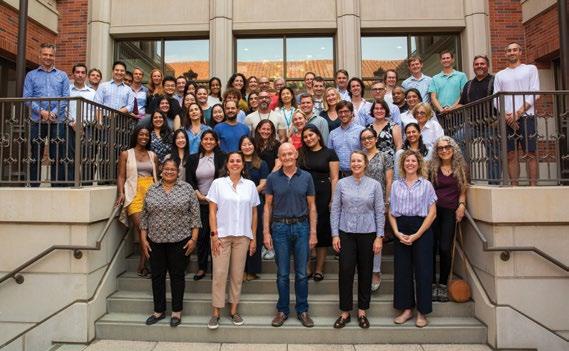
1 minute read
LOOKING AT COVID FROM ALL ANGLES
FROM THE MOMENT CESR OPENED, our researchers have looked to current events for topics of study: elections, the gyrations of a global economy, climate change’s widespread fallout. But no breaking news so directly seized our attention as did 2020’s worldwide COVID pandemic.
Every aspect of society was affected by the virus, from business shutdowns to disruptions in learning, in addition to, of course, the mounting death toll.
Advertisement
CESR scientists delivered timely research and tracked public sentiment. The Understanding America Study (UAS) measured the pandemic’s effects on classroom learning, mental health, vaccine perception, eating disorders, and many other issues.

The UAS showed:
» Women carried a heavier childcare load than men during the crisis, even while working.
» A “pandemic misery” index showed 80% of the participants experienced hardships the prior year.
» Coronavirus-related job losses had an outsized impact on Blacks and Latinos.
» In 2020, displacement pressures were pervasive in Los Angeles County. One-third of the moves by renters that year were due to displacement.
» Early on, L.A. County residents reported substantially higher rates of anxiety than the rest of the country.
» Americans’ financial situations improved largely due to government stimulus payments.
» When offered, parents chose not to enroll their children in COVIDrecovery interventions—and when they were not offered, parents didn’t particularly care.
Getting vaccinated against COVID reduced depression.
When vaccines first became available in early 2021, those who had not yet received the vaccine began to feel even more anxious and depressed.
Your genes influence your chances for obesity, but education can reduce that risk.
Compulsory education reduced the gap in unhealthy body size between those in the top and bottom terciles of genetic risk of obesity.
Educating doctors about diagnostic testing options improves the quality of malaria care, but patients do not recognize these improvements.
Patients pressure doctors to prescribe unnecessary antimalarials, contributing to inefficient overuse of valuable medication.






